Travel
Top Oldest Countries In The World 2024

Exploring the world’s top ten oldest countries is like entering a time machine and traveling back thousands of years to witness the birth of civilization. From Egypt’s pyramids to Japan’s temples, each country has a unique story to tell. The top ten oldest countries in the world are Egypt, China, Iraq, Iran, India, Greece, Japan, Turkey, Italy, and Mexico.
These top ten oldest countries in the world serve as historical cornerstones, demonstrating humanity’s perseverance and ingenuity throughout the centuries. As we explore the world’s top ten oldest countries by age, we discover the foundations on which our modern world is constructed. These everlasting gems serve as reminders of our common ancestry and the incredible path of human civilization.
1. Mexico
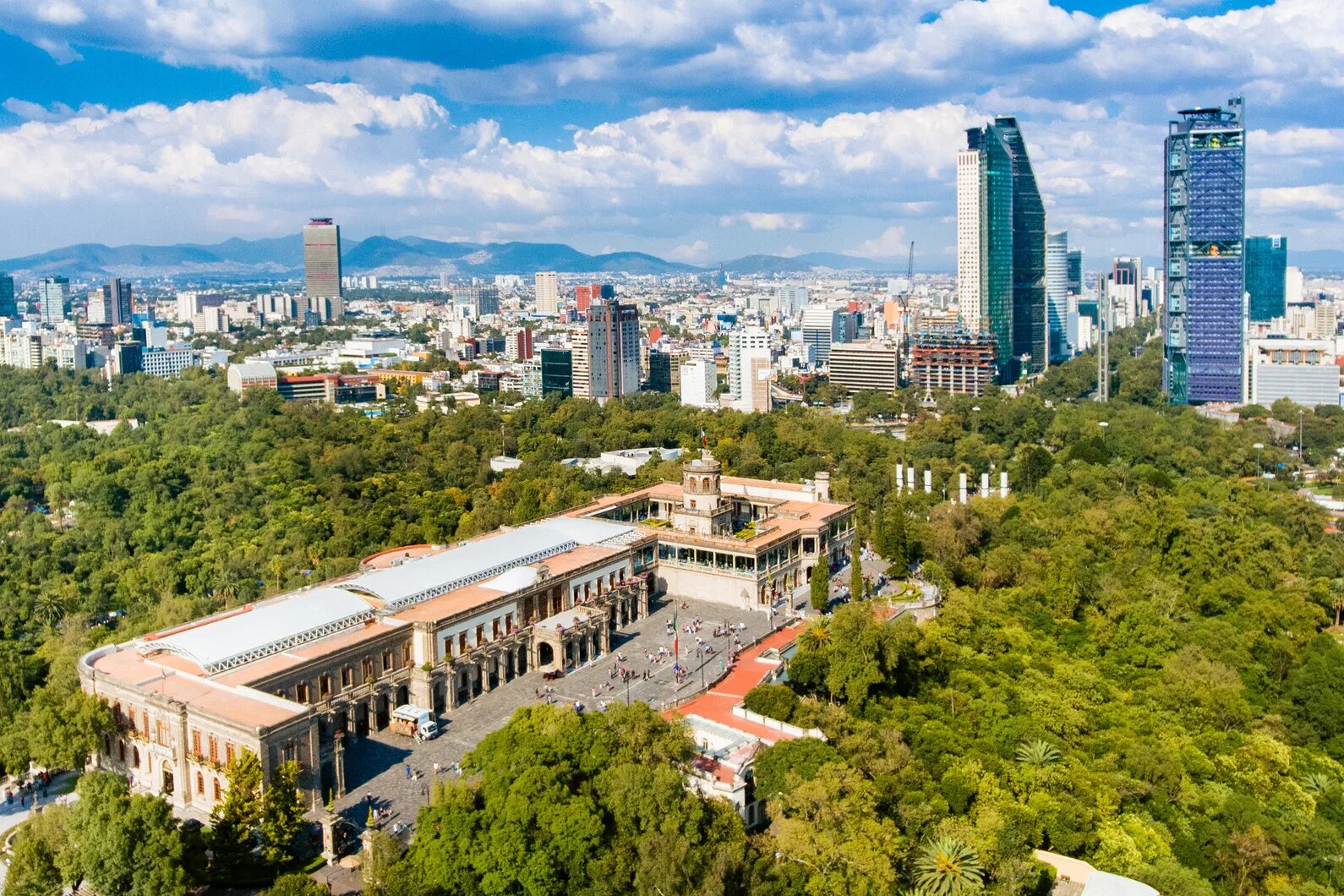
Mexico, located in North America, is one of the world’s oldest countries, having thousands of years of history. Imagine a land where ancient civilizations thrived, leaving incredible legacies that continue to fascinate us now. Mexico’s history began with civilizations such as the Olmec, Maya, and Aztec, who created magnificent cities and made breakthrough contributions to agriculture, astronomy, and architecture.
- One of Mexico’s most famous archaeological sites is Teotihuacan, a vast city complex that flourished over 2,000 years ago. Known for its towering pyramids, intricate murals, and wide avenues, Teotihuacan was one of the largest cities in the ancient world. Another iconic site is Chichen Itza, a Maya city known for its towering step pyramid, El Castillo, and its intricate observatory, El Caracol.
- But Mexico’s history is not just about ancient ruins; it is also a story of resilience and cultural heritage. Despite facing conquest and colonization, Mexico’s indigenous peoples have preserved their traditions, languages, and customs, enriching the country’s cultural tapestry.
- Mexico’s cultural heritage extends beyond its ancient civilizations to include vibrant music, colorful festivals, and delicious cuisine. Traditional Mexican music, with its lively rhythms and soulful melodies, reflects the country’s diverse cultural influences. Mexican cuisine, with its rich flavors and fresh ingredients, is celebrated around the world for dishes like tacos, tamales, and mole.
- Today, Mexico is a modern and dynamic country, where ancient traditions blend seamlessly with contemporary life. Its cities are bustling hubs of activity, filled with historic landmarks, lively markets, and delicious street food. Its natural beauty, from pristine beaches to lush jungles, attracts visitors from all over the globe. As one of the oldest countries in the world, Mexico’s story continues to inspire and captivate, reminding us of the enduring legacy of its ancient civilizations and the richness of its cultural heritage.
2. Italy
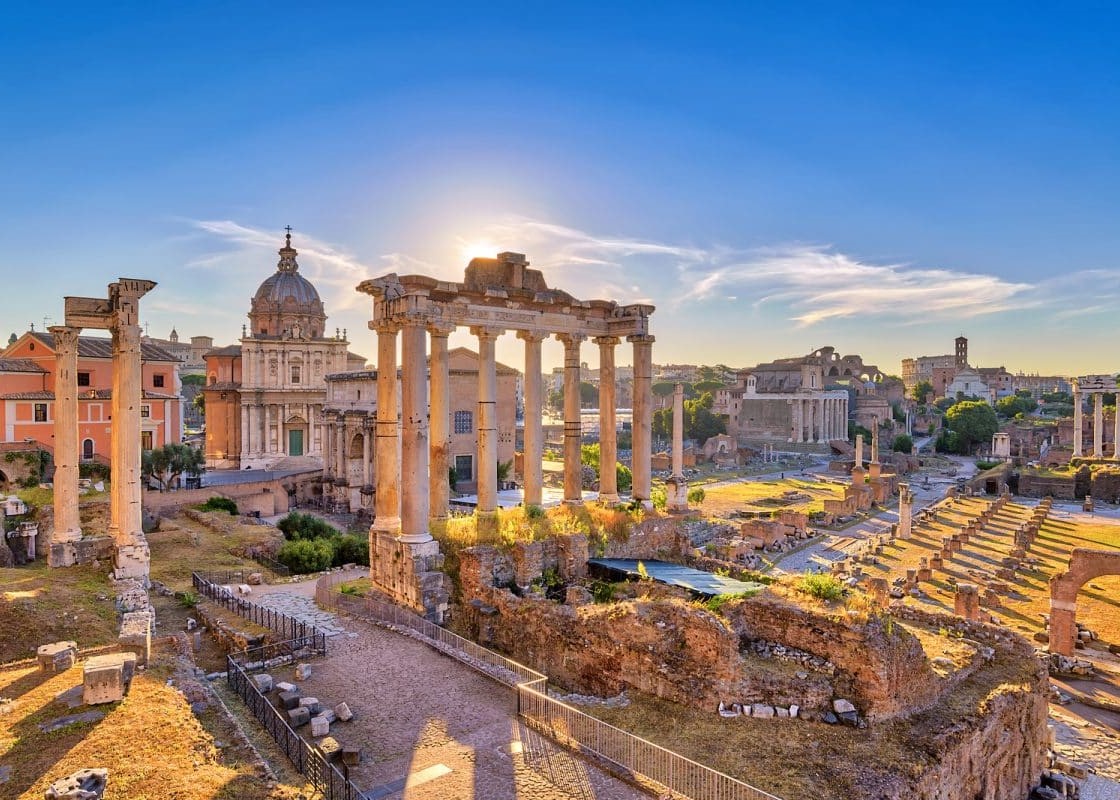
Italy, located in southern Europe, is one of the world’s oldest countries, dating back thousands of years. Imagine a land where ancient ruins serve as mute witnesses to the emergence and fall of powerful empires. Italy’s tale begins with the ancient Romans, who built one of history’s most powerful empires.
- One of Italy’s most famous landmarks is the Colosseum, a massive amphitheater that once hosted gladiator contests and other spectacles. Built over 2,000 years ago, the Colosseum is a symbol of Rome’s power and grandeur. Another iconic site is the city of Pompeii, preserved in ash after the eruption of Mount Vesuvius in 79 AD, offering a glimpse into daily life in ancient Rome.
- But Italy’s history is not just about ancient Rome; it is also a story of art, architecture, and innovation. During the Renaissance, Italy was the epicenter of a cultural revolution that gave birth to masterpieces by artists like Leonardo da Vinci, Michelangelo, and Raphael. The city of Florence, with its magnificent cathedrals and palaces, became a hub of artistic and intellectual activity.
- Italy’s cultural heritage extends beyond its artistic achievements to include cuisine, fashion, and literature. Italian cuisine, with its pasta, pizza, and gelato, is beloved around the world for its delicious flavors and simple ingredients. Italian fashion designers like Gucci, Prada, and Versace set trends on the global stage, while Italian authors like Dante Alighieri and Giovanni Boccaccio continue to inspire readers with their timeless works.
- Today, Italy remains a vibrant and enchanting country, where ancient traditions blend seamlessly with modern innovations. Its cities are filled with bustling piazzas, charming cafes, and centuries-old churches, while its countryside is dotted with vineyards, olive groves, and medieval villages. As one of the oldest countries in the world, Italy’s story continues to captivate and inspire, reminding us of the enduring legacy of human creativity and achievement.
3. Turkey

Turkey, positioned at the crossroads of Europe and Asia, is one of the world’s oldest countries, dating back thousands of years. Consider a land where ancient civilizations once thrived, leaving a rich tapestry of culture and tradition. Turkey’s history begins with the advent of civilizations such as the Hittites and Byzantines, who created spectacular ruins that still dot the country today.
- One of Turkey’s most famous landmarks is Hagia Sophia, a stunning architectural marvel that has served as a church, mosque, and museum over the centuries. Built over 1,500 years ago, Hagia Sophia is a testament to Turkey’s diverse cultural heritage and its role as a bridge between East and West.
- But Turkey’s history is not just about ancient ruins; it is also a story of empires and conquests. The Ottoman Empire, one of the most powerful empires in history, ruled over much of the Middle East, North Africa, and Southeast Europe for over six centuries. Its legacy can be seen in the grand mosques, palaces, and bazaars that still stand in cities like Istanbul and Edirne.
- Turkey’s cultural heritage extends beyond its architectural wonders to include cuisine, music, and literature. Turkish cuisine is known for its rich flavors and diverse ingredients, influenced by the culinary traditions of the Ottoman Empire and beyond. Turkish music, with its haunting melodies and rhythmic beats, reflects the country’s multicultural heritage, blending elements of Turkish, Arabic, and European styles.
- Today, Turkey remains a vibrant and dynamic country, where ancient traditions coexist with modern innovations. Its bustling cities buzz with activity, while its picturesque countryside offers a glimpse into a simpler way of life. As one of the oldest countries in the world, Turkey’s story continues to unfold, a testament to the resilience and creativity of its people throughout the ages.
4. Japan

Japan, an East Asian island nation, stands out as one of the world’s oldest countries, with a history spanning thousands of years. Imagine a world where old traditions coexist with new advances, weaving a fascinating tapestry of culture and legacy. Japan’s history began with the Yamato clan, which founded the first Japanese state in the fifth century CE.
- One of Japan’s most iconic symbols of antiquity is the majestic Mount Fuji, an active volcano that has inspired artists and poets for centuries. Its symmetrical cone rises gracefully above the landscape, symbolizing Japan’s enduring spirit and natural beauty. But Japan’s history is not just about majestic mountains; it is also a story of samurai warriors, shogun rulers, and elegant geisha.
- The samurai, Japan’s legendary warriors, played a central role in shaping the country’s history and culture. With their code of bushido, or “way of the warrior,” they embodied principles of honor, loyalty, and courage. The shoguns, military rulers who held power for centuries, ushered in periods of stability and prosperity, leaving behind a legacy of architectural marvels like Kyoto’s magnificent temples and castles.
- Japan’s cultural heritage extends beyond its ancient traditions to include innovations in art, literature, and technology. From the delicate beauty of cherry blossom paintings to the intricate craftsmanship of samurai swords, Japan’s artistic achievements continue to inspire admiration around the world. And in the realm of technology, Japan is known for its cutting-edge innovations, from high-speed trains to advanced robotics.
- Today, Japan remains a land of contrasts, where ancient customs coexist with modern advancements. Its bustling cities pulse with energy, while its serene countryside offers a retreat from the hustle and bustle of urban life. As one of the oldest countries in the world, Japan’s story continues to unfold, a testament to the resilience and ingenuity of its people throughout the ages.
5. Greece
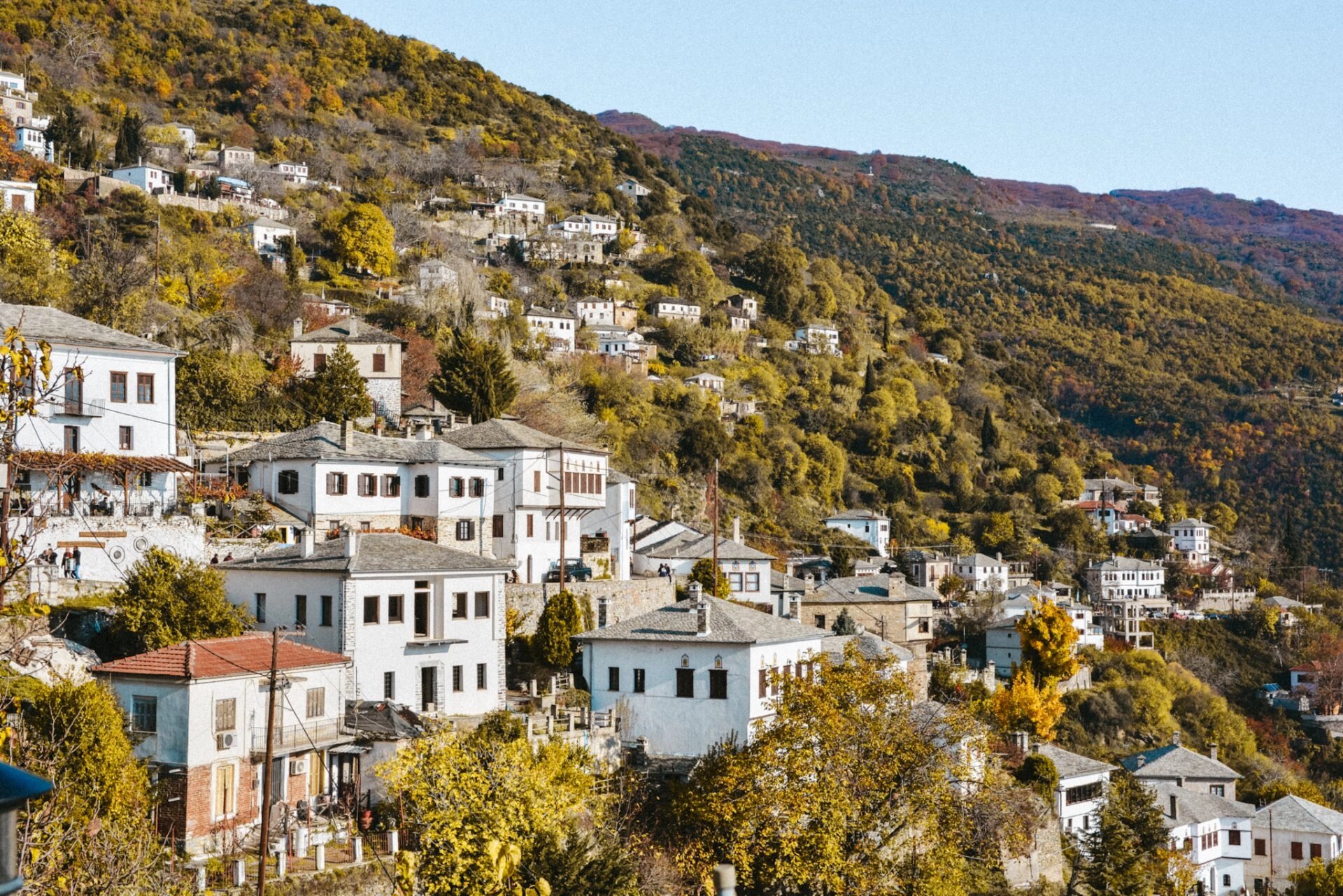
Greece, located in southeastern Europe, maintains a unique position as one of the world’s oldest countries, with a history spanning thousands of years. Consider a region where ancient gods and heroes once walked, leaving a trail of myth and tradition. Greece’s history begins with the establishment of powerful city-states such as Athens and Sparta, which set the groundwork for Western civilization.
- One of Greece’s most enduring legacies is its contributions to art, philosophy, and democracy. In ancient Athens, the birthplace of democracy, citizens gathered to debate and make decisions about the governance of their city-state. Philosophers like Socrates, Plato, and Aristotle pondered the mysteries of existence, laying the groundwork for Western philosophical thought.
- Greece is also home to magnificent architectural wonders, such as the Parthenon, a temple dedicated to the goddess Athena. Built over 2,000 years ago, the Parthenon stands as a symbol of classical Greek civilization, with its graceful columns and intricate sculptures.
- But Greece’s history is not just about ancient ruins and philosophy; it is also a story of resilience and cultural exchange. Over the centuries, Greece has been influenced by numerous civilizations, including the Romans, Byzantines, and Ottomans, each leaving its mark on the country’s cultural landscape.
- Today, Greece remains a treasure trove of history and beauty, attracting visitors from around the world to its sun-drenched islands and picturesque villages. Its rich cultural heritage, from its ancient ruins to its vibrant festivals, serves as a reminder of the enduring legacy of one of the world’s oldest countries. As Greece continues to navigate the complexities of the modern world, its ancient past remains a source of inspiration and pride for its people and for all who are touched by its timeless allure.
6. India
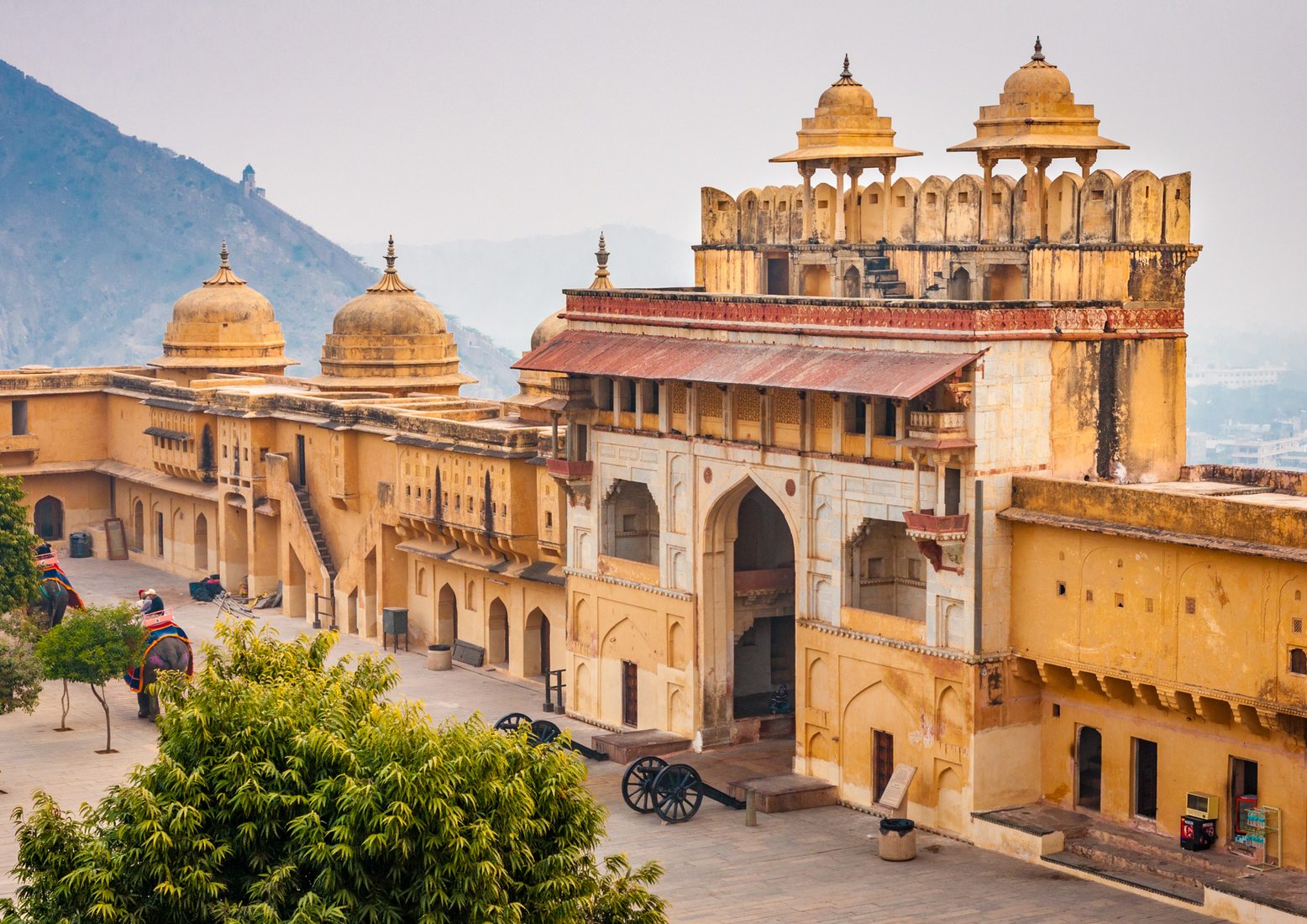
India, located in South Asia, is recognized as one of the world’s oldest countries, having a history dating back thousands of years. Imagine a country where ancient civilizations flourished, leaving a rich tapestry of culture, tradition, and heritage. India’s history begins with the ancient Indus Valley civilization, which was one of the world’s first urban communities. This civilization thrived on the banks of the Indus River, developing sophisticated city design and advanced drainage systems.
- One of India’s most iconic symbols of antiquity is the majestic Taj Mahal, built in the 17th century as a testament to love. Its stunning architecture and intricate marble carvings attract millions of visitors from around the globe each year. But India’s history is not just about magnificent monuments; it is also a story of spiritual enlightenment and philosophical wisdom.
- The teachings of ancient Indian sages like Gautama Buddha and Mahavira laid the foundations of Buddhism and Jainism, two major world religions that emphasize non-violence and compassion. The Bhagavad Gita, a sacred text of Hinduism, offers timeless lessons on duty and righteousness, inspiring generations of seekers on the path to spiritual enlightenment.
- Over the centuries, India has been home to numerous kingdoms and empires, each leaving its mark on the country’s cultural landscape. From the Maurya and Gupta empires to the Mughal and British colonial periods, India’s history is a tapestry of diversity and resilience.
- Today, India is a vibrant mosaic of languages, religions, and traditions, where ancient customs blend harmoniously with modern innovations. Its bustling cities pulse with energy, while its rural villages offer a glimpse into traditional ways of life. As one of the oldest countries in the world, India’s story continues to unfold, a testament to the enduring spirit of its people and the richness of its cultural heritage.
7. Iran

Ancient Persia, currently known as Iran, had a history of almost 3,000 years. The Persian Empire, led by Cyrus the Great and Darius the Great, expanded its authority throughout huge expanses of territory, including modern-day Iran, Iraq, Egypt, and beyond. The ruins of Persepolis and Pasargadae are testaments to the magnificence of this ancient civilization.
- Iran, situated in the heart of the Middle East, is counted among the oldest countries in the world, boasting a history that spans thousands of years. Imagine a land where ancient empires once flourished, leaving behind a legacy of culture, art, and innovation. Iran’s story begins with the rise of the Persian Empire, one of the most powerful civilizations of antiquity. Under rulers like Cyrus the Great and Darius the Great, Persia extended its influence across vast territories, from the Mediterranean to the Indus River.
- One of Iran’s most famous ancient sites is Persepolis, the ceremonial capital of the Persian Empire. Built over 2,500 years ago, Persepolis is a testament to the grandeur and sophistication of ancient Persian architecture. Its towering columns and intricate carvings tell the story of a mighty empire at the height of its power.
But Iran’s history is not just about empires and conquests; it is also a story of cultural exchange and innovation. - Ancient Persians made significant contributions to fields such as mathematics, astronomy, and medicine, laying the groundwork for many scientific advancements.
Over the centuries, Iran has been shaped by the ebb and flow of history, from the Arab conquests to the rise of the Safavid and Qajar dynasties. Each era brought new influences and challenges, shaping the rich tapestry of Iranian culture. - Today, Iran remains a land of contrasts, where ancient traditions coexist with modern aspirations. Its bustling cities buzz with activity, while its historic sites draw visitors from around the world. As one of the oldest countries in the world, Iran’s story serves as a reminder of the enduring legacy of ancient civilizations and the resilience of the human spirit.
8. Iraq
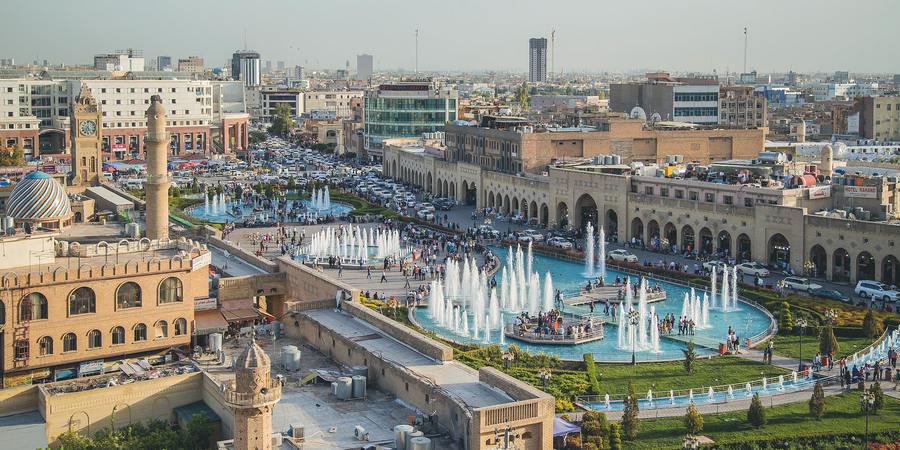
Mesopotamia, sometimes known as the “cradle of civilization,” was home to the ancient Sumerian, Akkadian, and Babylonian civilizations, making Iraq one of the oldest inhabited locations on the planet. The lush regions between the Tigris and Euphrates rivers supported the emergence of early agricultural cultures, giving rise to some of the world’s first towns, including Ur and Babylon.
- Iraq, nestled in the heart of the Middle East, holds a place among the oldest countries in the world, with a history that stretches back to ancient times. Imagine a land where mighty civilizations once flourished, leaving behind traces of their glory in the sands of time. Mesopotamia, the region that is now modern-day Iraq, is often called the “cradle of civilization” because it was home to some of the earliest known civilizations on Earth.
- One of Iraq’s most famous ancient cities is Babylon, renowned for its magnificent architecture and the legendary Hanging Gardens, one of the Seven Wonders of the Ancient World. Another ancient city, Ur, was once a bustling center of trade and culture, where the Sumerians developed one of the world’s first writing systems, cuneiform.
Iraq’s rich history is also intertwined with the rise and fall of empires, from the Akkadians and Babylonians to the Assyrians and Persians. These civilizations left behind a legacy of art, literature, and law that influenced cultures far beyond the borders of Mesopotamia. - Despite its ancient past, Iraq has faced numerous challenges throughout history, including invasions, wars, and political instability. However, its people have shown resilience and strength in the face of adversity, preserving their cultural heritage and traditions.
- Today, Iraq remains a land of rich cultural diversity, where ancient ruins and modern cities coexist side by side. While the country continues to rebuild and recover from years of conflict, its historical significance and contributions to human civilization remain undeniable. As one of the oldest countries in the world, Iraq’s story serves as a reminder of the enduring legacy of ancient civilizations and the importance of preserving our shared heritage for future generations.
9. China
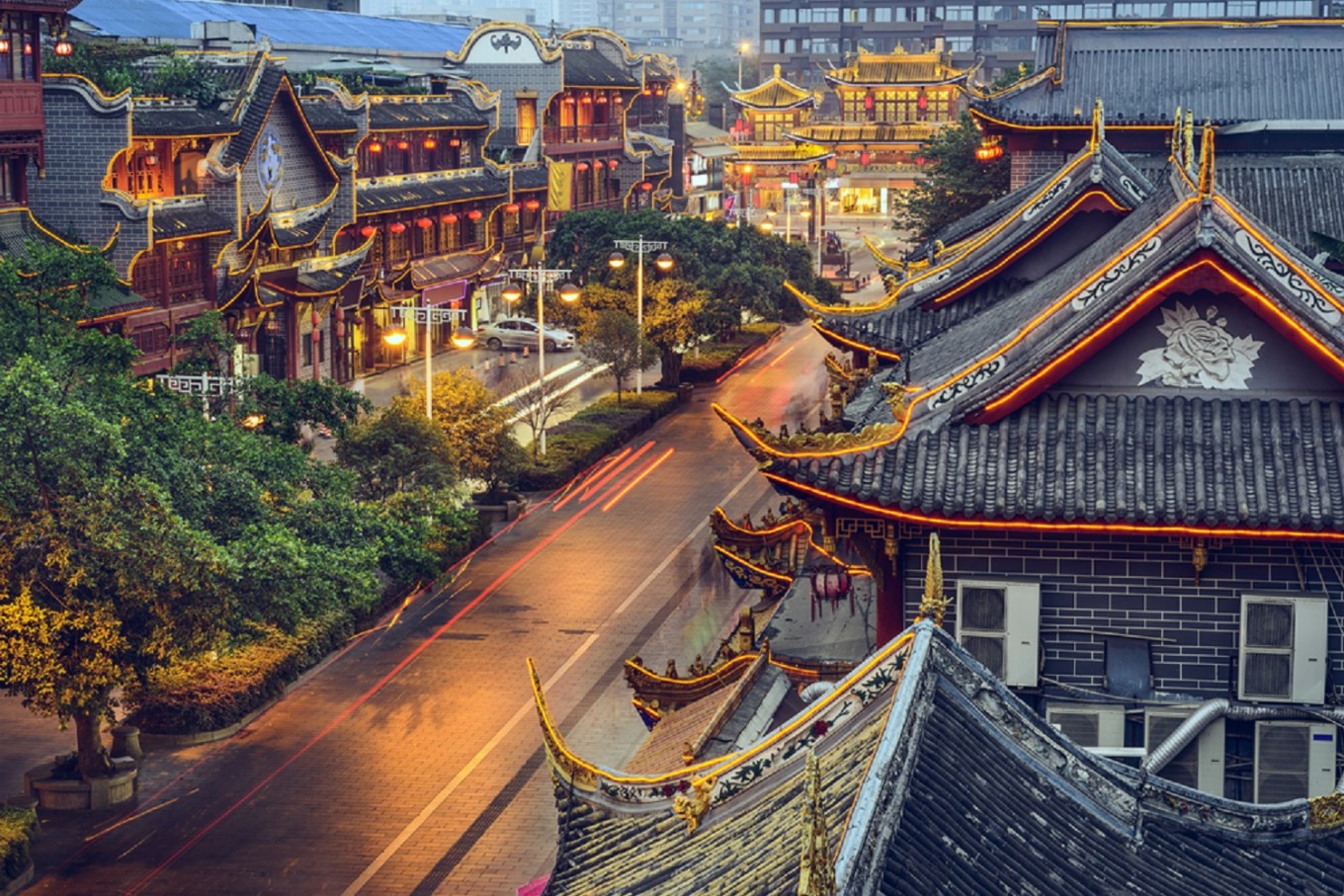
China is one of the world’s oldest countries, spanning thousands of years of history. Imagine a huge nation where monarchs once ruled over powerful dynasties and academics studied the wonders of the world. China’s history began in antiquity, with mythical figures such as the Yellow Emperor and the scholar Confucius influencing its early years.
- At the heart of China’s ancient heritage are its magnificent landmarks, like the Great Wall. Built over many centuries to protect against invaders, the Great Wall stretches across mountains and valleys, a symbol of China’s strength and determination. Then there are the terracotta warriors, an army of clay soldiers buried with China’s first emperor, Qin Shi Huang, over 2,000 years ago. Discovered in the 20th century, these life-sized statues amaze visitors with their lifelike detail.
- But China’s history isn’t just about emperors and warriors; it’s a land of invention and innovation, too. Ancient Chinese scholars invented paper, printing, and gunpowder, shaping the course of human history. They studied the stars and created intricate calendars, laying the groundwork for modern astronomy.
- Over the centuries, China has seen the rise and fall of many dynasties, each leaving its mark on the land. From the mighty Han and Tang dynasties to the glorious Ming and Qing dynasties, China’s history is a tapestry of triumphs and challenges.
- Today, China is a blend of ancient traditions and modern innovations, a dynamic nation at the forefront of global affairs. Its bustling cities buzz with activity, while its picturesque countryside retains the charm of yesteryears. As one of the oldest countries in the world, China’s story continues to unfold, a testament to the enduring spirit of its people and the richness of its cultural heritage.
10. Egypt
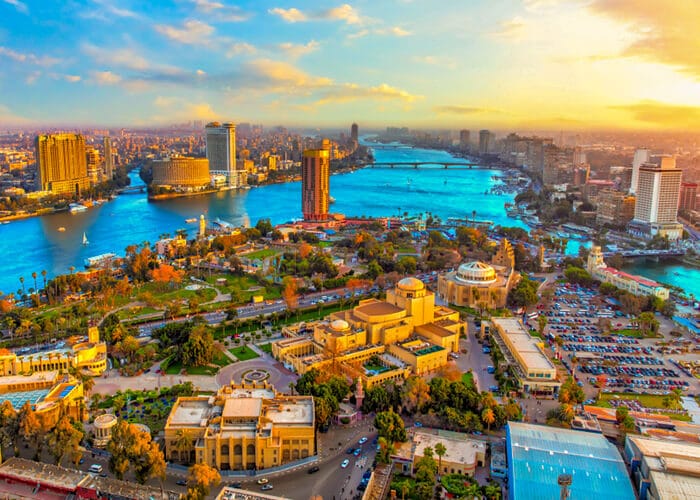
Egypt, located along the Nile River, is often recognized as one of the world’s oldest countries, having a history spanning more than 5,000 years. The pyramids of Giza, the Sphinx, and the temples of Luxor are enduring emblems of this astonishing past, attracting visitors from all over the world to marvel at their magnificence.
- But Egypt’s history isn’t just about pyramids. It’s a land of temples and tombs, too. In places like Luxor, we find gigantic temples dedicated to gods and goddesses, telling stories of ancient beliefs and rituals. And in the Valley of the Kings, hidden tombs hold the remains of pharaohs, their walls adorned with colorful paintings and hieroglyphs, ancient Egyptian writing.
- Egypt isn’t just about buildings and tombs; it’s also a land of creativity and knowledge. Long ago, Egyptians were pioneers in many fields, like mathematics, astronomy, and medicine. They created a writing system called hieroglyphs, using symbols and pictures to tell stories and record history.
- Throughout its history, Egypt has seen many different rulers and civilizations, each leaving its mark on the land. From the time of the pharaohs to Greek and Roman rule, and later Islamic influences, Egypt’s culture has been shaped by diverse traditions and customs.
- Today, Egypt welcomes visitors from all over the world, inviting them to explore its ancient wonders and vibrant culture. From the bustling streets of Cairo to the calm waters of the Red Sea, there’s something for everyone to discover in this ancient land. As one of the oldest countries in the world, Egypt’s story continues to fascinate and inspire, reminding us of the enduring legacy of human civilization.
Conclusion:
As we journey through history, we come across the enduring legacies of civilizations that impacted the world we live in today. From the dunes of Egypt to the temples of Japan, the world’s top ten oldest countries are testaments to human perseverance and the enduring force of culture and legacy. As we marvel at the wonders of these old lands, remember the lessons they teach and the stories they tell, for these are the foundations on which our modern world is constructed.
FAQs
What is the oldest country in the world?
The title of the oldest country in the world is often contested due to varying definitions of statehood and continuity. However, some of the oldest continuous countries include Egypt, China, Greece, Iran, and Iraq.
How do historians determine the age of a country?
Historians typically use a combination of archaeological evidence, written records, and historical accounts to determine the age of a country. Factors such as the establishment of a centralized government, the formation of cultural identity, and the continuity of political entities are considered.
What is the significance of being one of the oldest countries in the world?
Being one of the oldest countries in the world often signifies a rich cultural heritage, a long history of civilization, and enduring traditions. These countries have contributed significantly to human civilization through advancements in art, science, philosophy, and governance.
What challenges have the oldest countries faced over the centuries?
Over the centuries, the oldest countries have faced various challenges, including invasions, wars, political instability, economic hardships, and natural disasters. Despite these challenges, many have managed to preserve their cultural identity and heritage.
